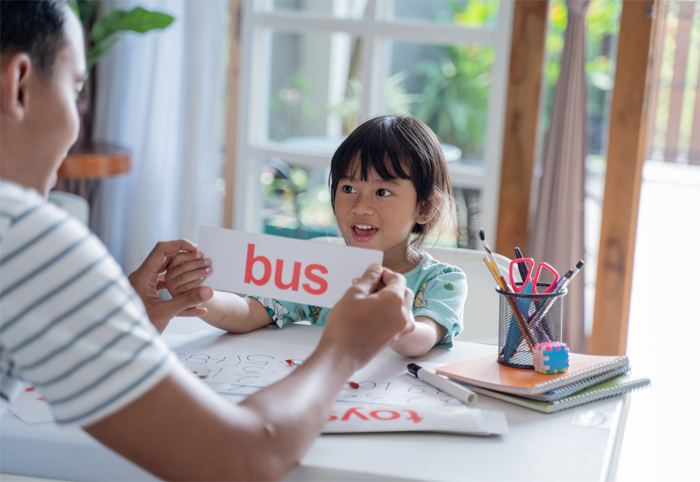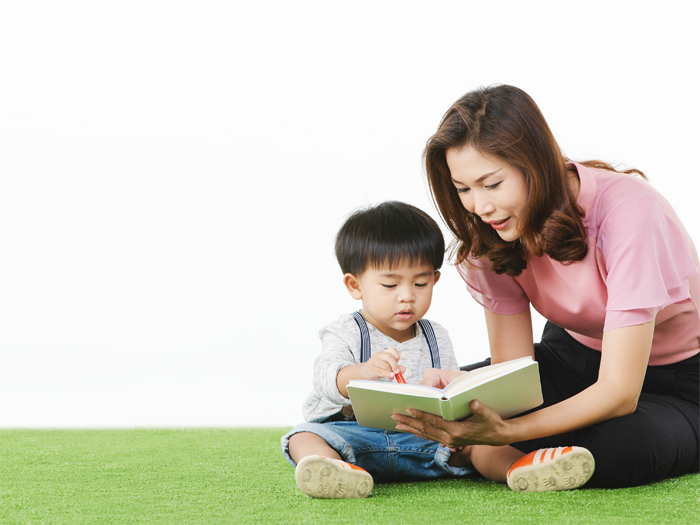
A parent asked at the Straits Times Education Forum if their kids will be able to learn by viewing informative television programmes. Dr Suskind shared that there has been research done with this and surprisingly, the kids did not seem to register the messages from the television after a while! We inferred that there was not enough engagement in terms of the hands and foot when the kids learn through television hence the brain does not retain. Amazing how the brain works, isn’t it!
After our recent trilogy on enrichment centres, especially the one on 6 Enrichment Centres for Singapore Kids Focused on Brain Development, we started asking… how can parents do our part in this abstract area of work when we face our kids the most! And we think we have found some tips for our parents at the recent sharing by Dr Dana Suskind at the Straits Times Education Forum held at Raffles City Convention Centre on 27 June 2015! Dr Suskind is a paediatric surgeon at the University of Chicago and studies early childhood development and the importance of parent talk.
Do you know that the brain is still in the formative stage of development in your child’s early years? According to Dr Suskind, 80-85% of the physical brain is developed in the first 3 years.

What is brain development?
Some of us are familiar with the concept of right and left brain development. Besides the complicated science of how the brain works, Dr Suskind summarised the following points that constitutes brain development (and we have helped to provide our own interpretation of the concepts with some suitable games and tools):
- Vocabulary development – use of words in describing feelings, thoughts, objects, most commonly done through flashcards and reading programmes.
- Literacy – ability to read and write numbers, language, usually developed together with reading programmes.
- Math & spatial reasoning – ability to read time, count, relate objects such as shapes and sizes.
- Executive function & self-regulation – ability to manage self which includes eating, greeting and interacting with people, dressing up and wearing shoes.
- Grit – a sense of desire to complete a task, like looking for food when hungry, removing objects that are in the way, developed through motivation and resilience training programmes.

How can parents help?
Dr Suskind also shared the importance of continually talking to your child as it is an engagement process through the ‘3Ts’ model which includes:
- Tune In – This is the process of starting to engage your child. Pay attention to what your child is saying and change your tone to match.
- Talk More – This sounds very intuitive, but talk what? Ask your child about what is happening now, what has happened before and what will happen in future. Also, your child’s thoughts and feelings. Actually, it is very much like having a conversation.
- Take Turns – This is important, as we very often forget this. Give the child a chance to respond! The more it is a two-way traffic, the more engaged the child will be. Some activities include taking turns to sing or complete parts of the puzzle.
If there is one activity that you must do with your child, it would be reading. Reading is the simplest way that allows you to engage in parent talk with your kids without having to think about what to say as you can make use of the content in the books!
Applying the ‘3Ts’ model in reading, these are some tips you can do when reading books to your child:
- Ask your child to read the title of the book and make him guess what the book is about.
- Look for graphics and images and get your child to describe what is happening.
- Take turns to read pages of the book.
- Take turns to flip the book.
- Ask your child how he/she will feel as the main character in the book and thoughts on what is done right or wrong.
- Relate a recent incident to what is happening in the story and ask how would he/she do differently.
Find out more about How to Get Your Child to Love Reading
So… have you figured out which areas of development your child is lacking in?
Browse our carefully selected range of story books here.
Don't miss out on our articles! We hope that you find them useful somehow, from parenting to exam preparation tips to best deals and free trial classes! Subscribe to our newsletter to receive updates on articles and best deals!

